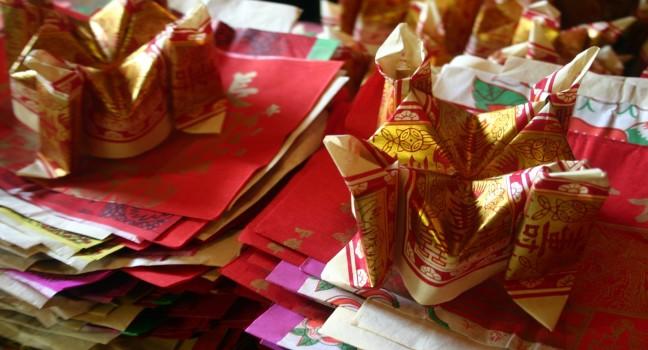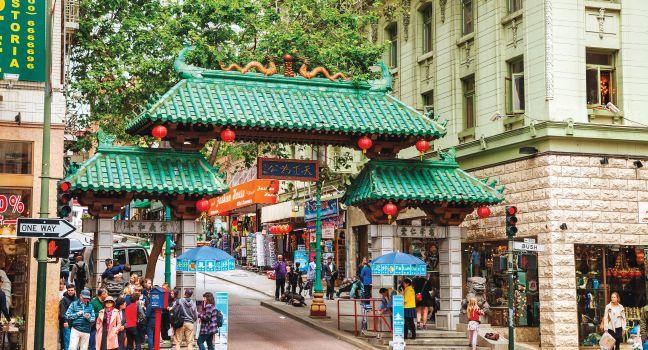Tin How Temple

In 1852, Day Ju, one of the first three Chinese to arrive in San Francisco, dedicated this temple to the Queen of the Heavens and the Goddess of the Seven Seas, and the temple looks largely the same today as it did more than a century ago. Duck into the inconspicuous doorway, climb three flights of stairs, and be surrounded by the aroma of incense in this tiny, altar-filled room. In the entryway, elderly ladies can often be seen preparing "money" to be burned as offerings to various Buddhist gods or as funds for ancestors to use in the afterlife. Hundreds of red-and-gold lanterns cover the ceiling; the larger the lamp, the larger its donor's contribution to the temple. Gifts of oranges, dim sum, and money left by the faithful, who kneel while reciting prayers, rest on altars to different gods. Tin How presides over the middle back of the temple, flanked by one red and one green lesser god. Taking photographs is not allowed.




